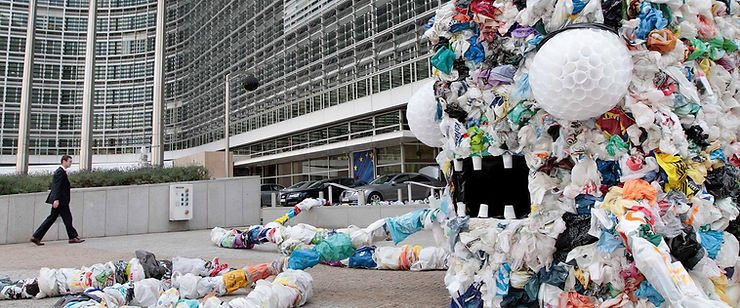By: Evan Yang
With the growing climate change crisis, many have demonized plastic as public enemy number oneThe use of everyday items such as disposable utensils, plastic straws, and plastic bags has been reduced, but would a plastic ban really solve climate change?
While single-use plastics are harmful to the environment, both the public and major corporations rely on them to provide ease of access and convenience to the consumer. Paper straws wilt in drinks, while produce kept loose in cardboard bruises and creates heavier loads. On the other hand, items such as plastic bags and food utensils make up the majority of ocean garbage.
Reports of the detrimental effect of plastics on the environment are plentiful, to say the least. The United States generated over 40 million tons of plastic waste in 2021 alone. Of this, only about five to six percent, or two million tons, was recycled.
Still, some argue that single-use plastics should not be the focus of reduce emissions. A report released in 2011 showed that a reusable cotton bag needed to be used 131 times to have a lower carbon footprint than a plastic bag. Taking into account production, use, and disposal, many reusable products actually have higher carbon footprints.
Just recently, California passed the first U.S. law to reduce the use of single-use plastic. A study from the University of Sydney found that the California bag ban reduced plastic bag consumption by 71.5 percent. However, the ban pushed consumers to find alternate, more “durable” multi-use plastic solutions, causing 28.5 percent the of plastic reduced to be offset by the creation of other plastic. The trend of banning plastic is not limited to the United States, though. Recently, France, the United Kingdom, and Australia have also banned various types of single-use plastic.
However, while plastic bans should not be the end goal to solve global warming, there is never a world where plastic is the better alternative. The cons always outweigh the pros. But currently, they are an important first step in a global marathon to stop global warming.











